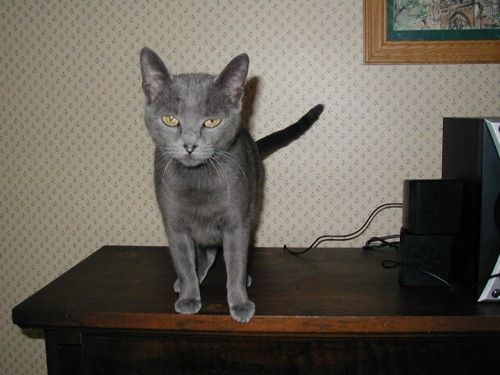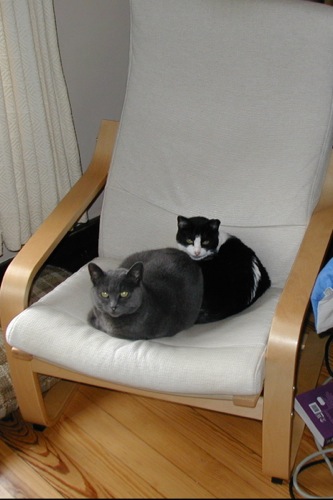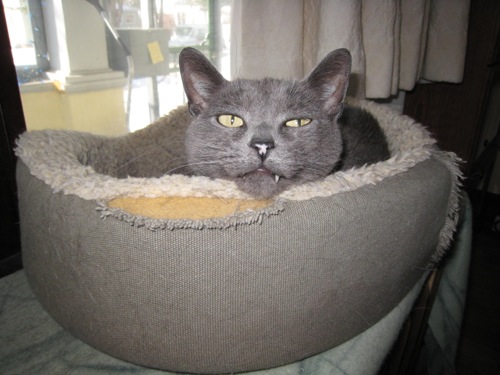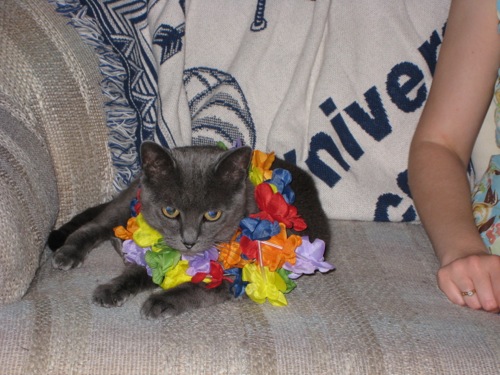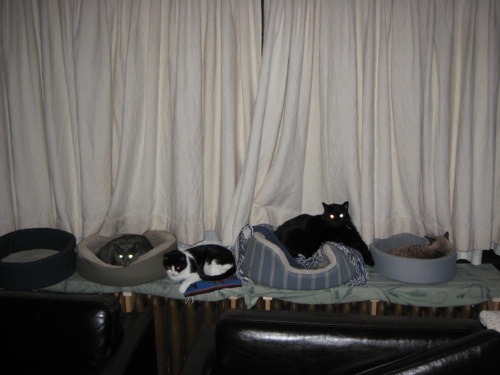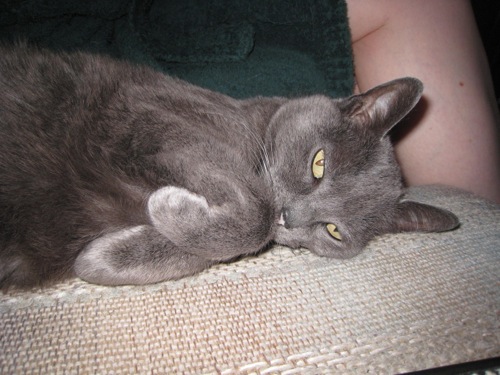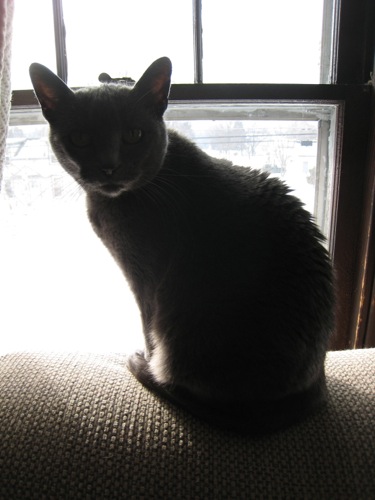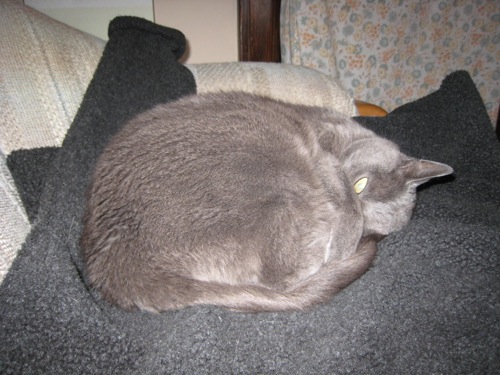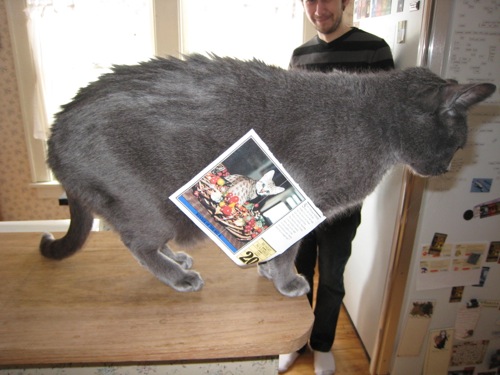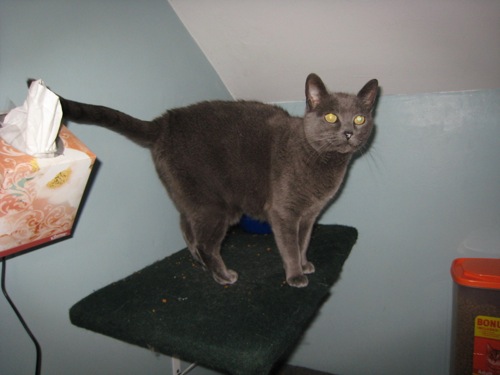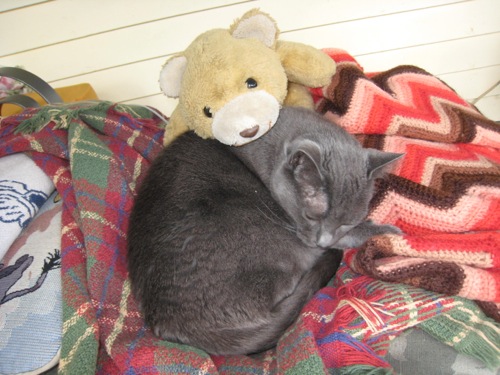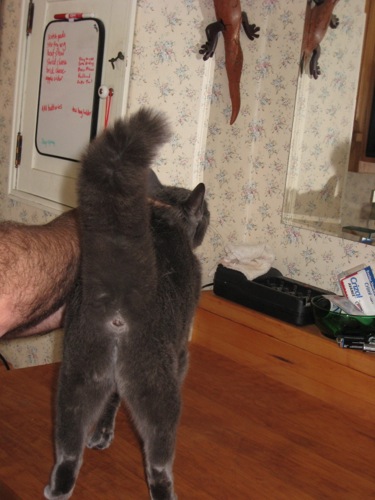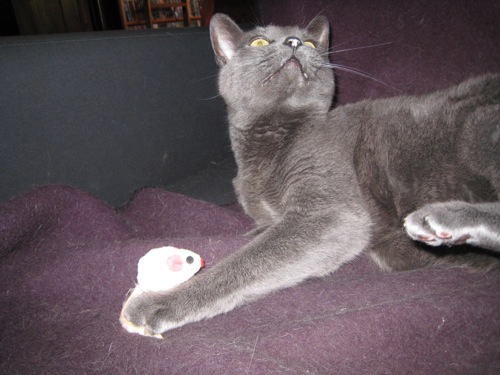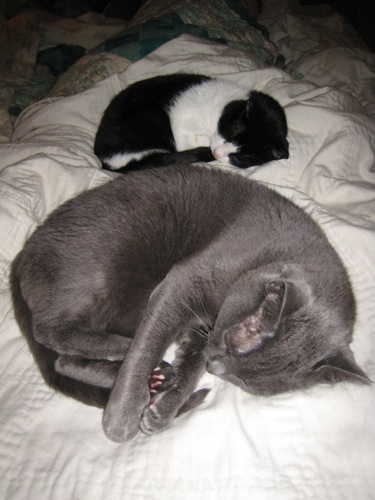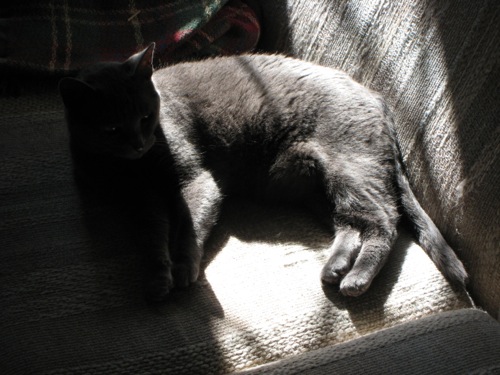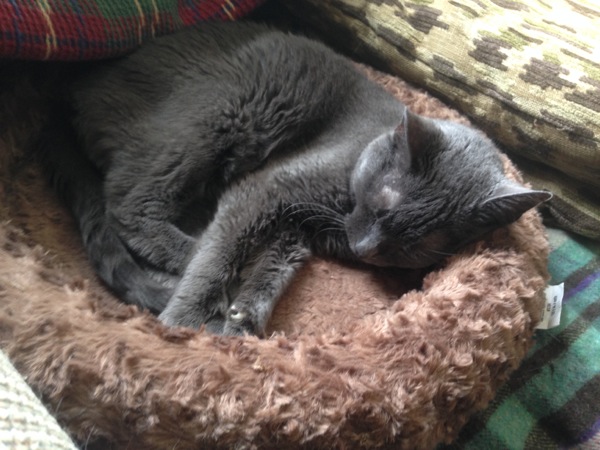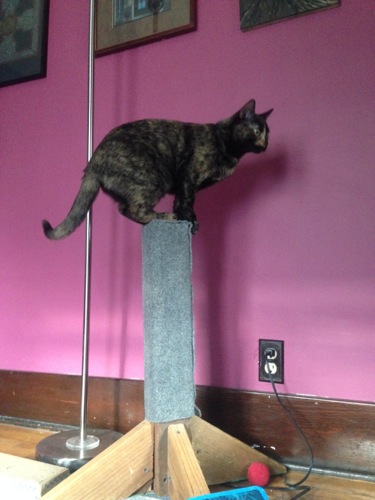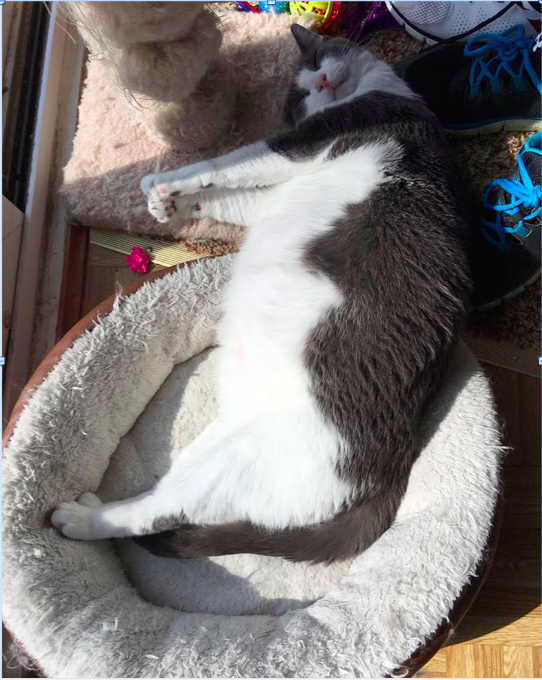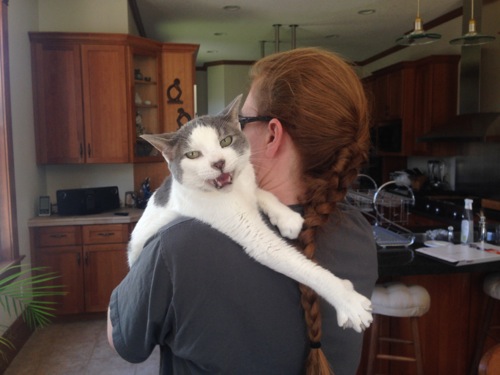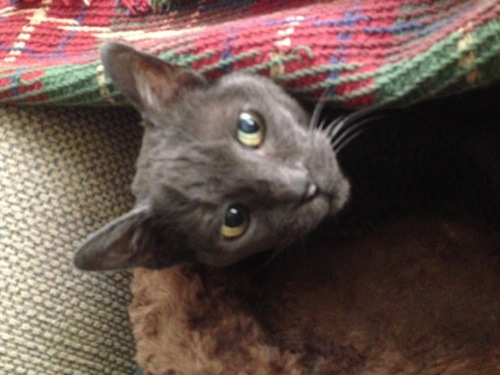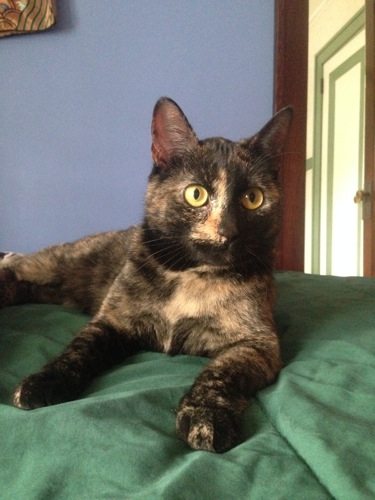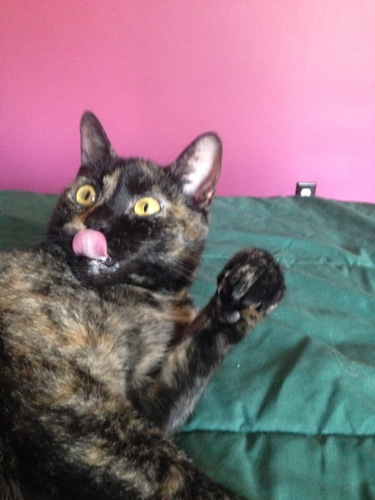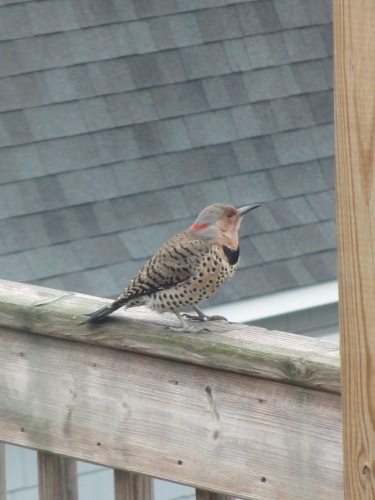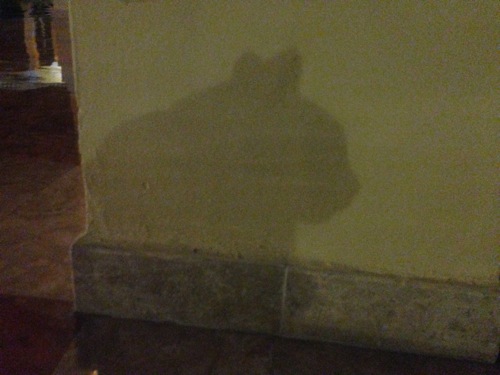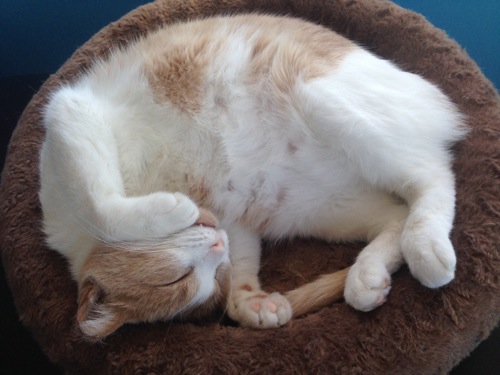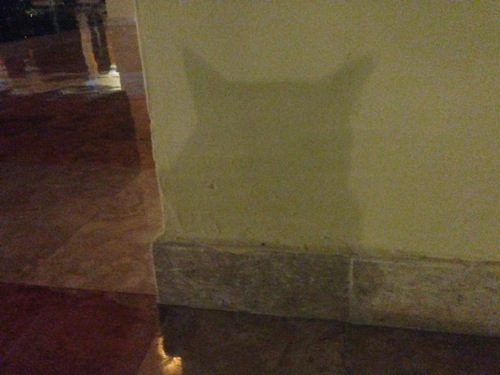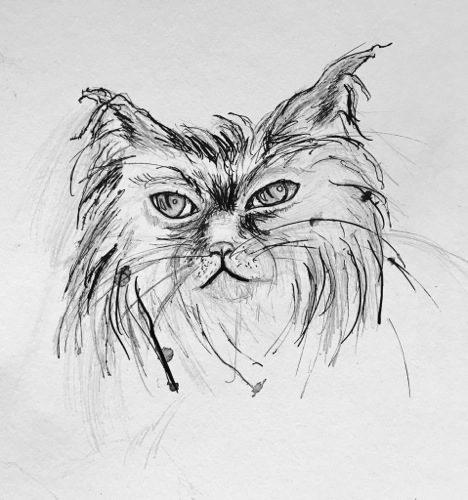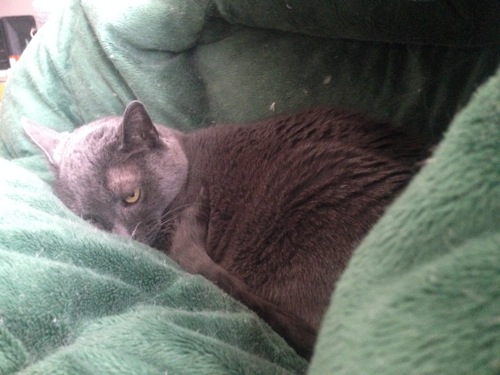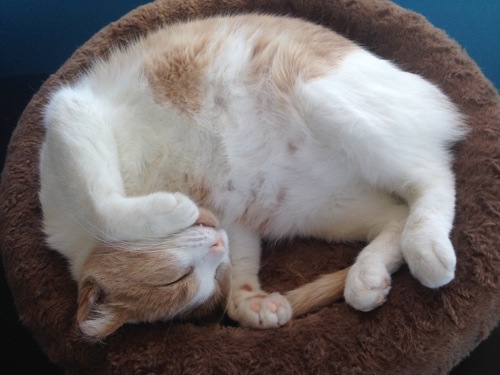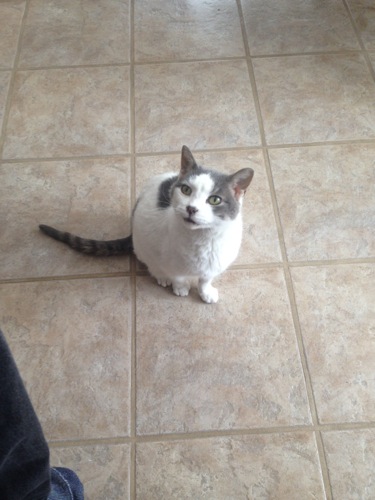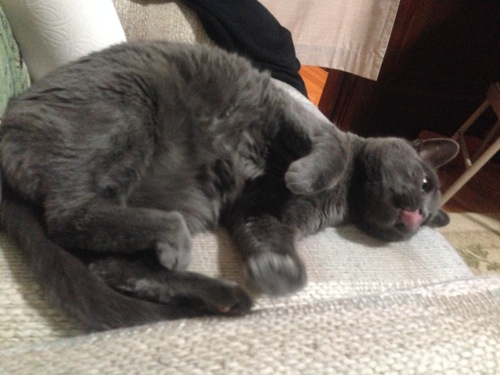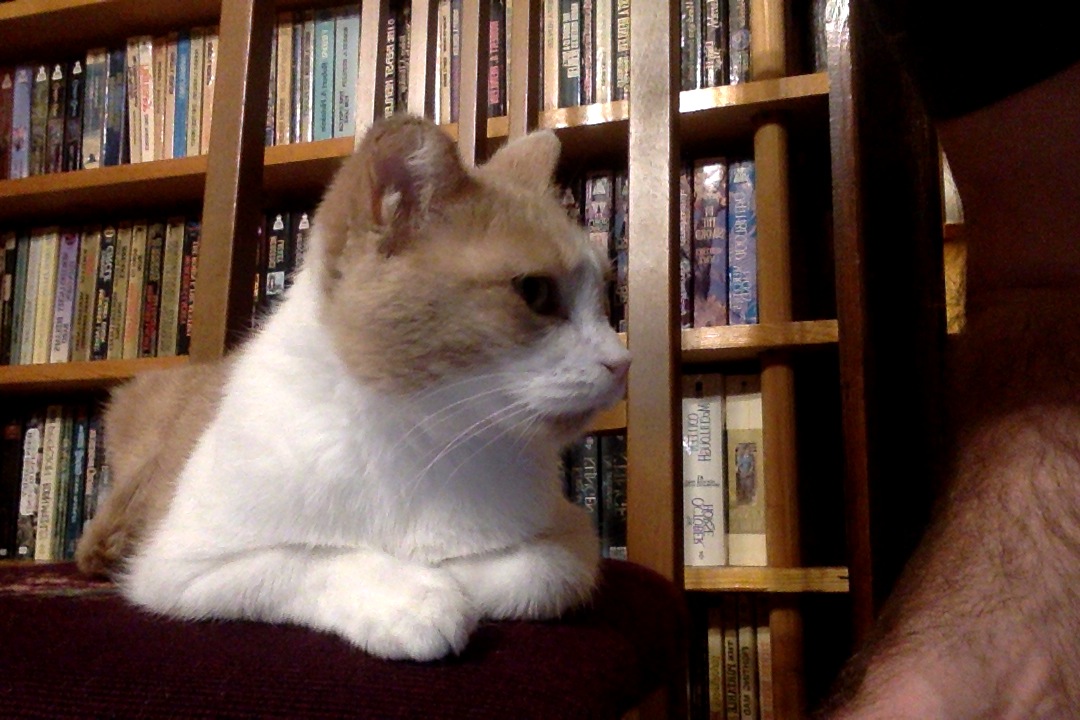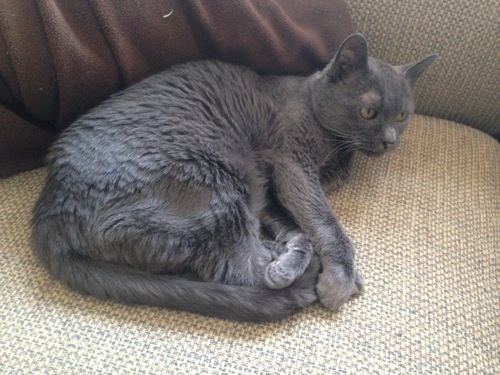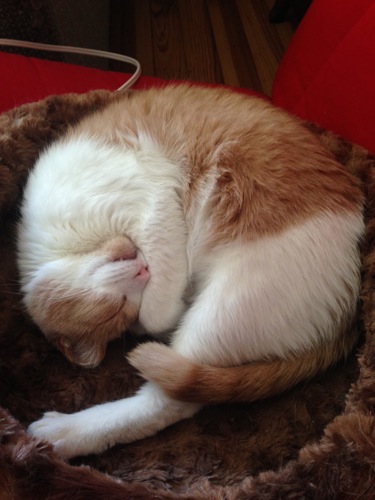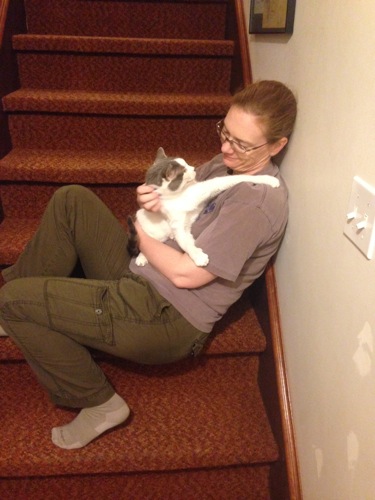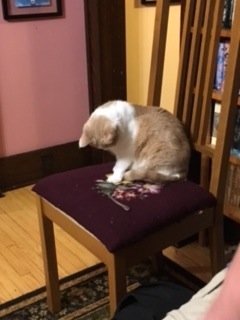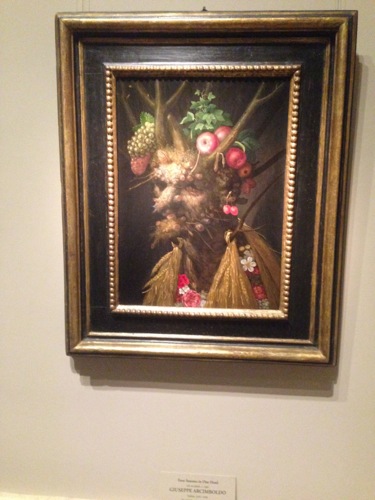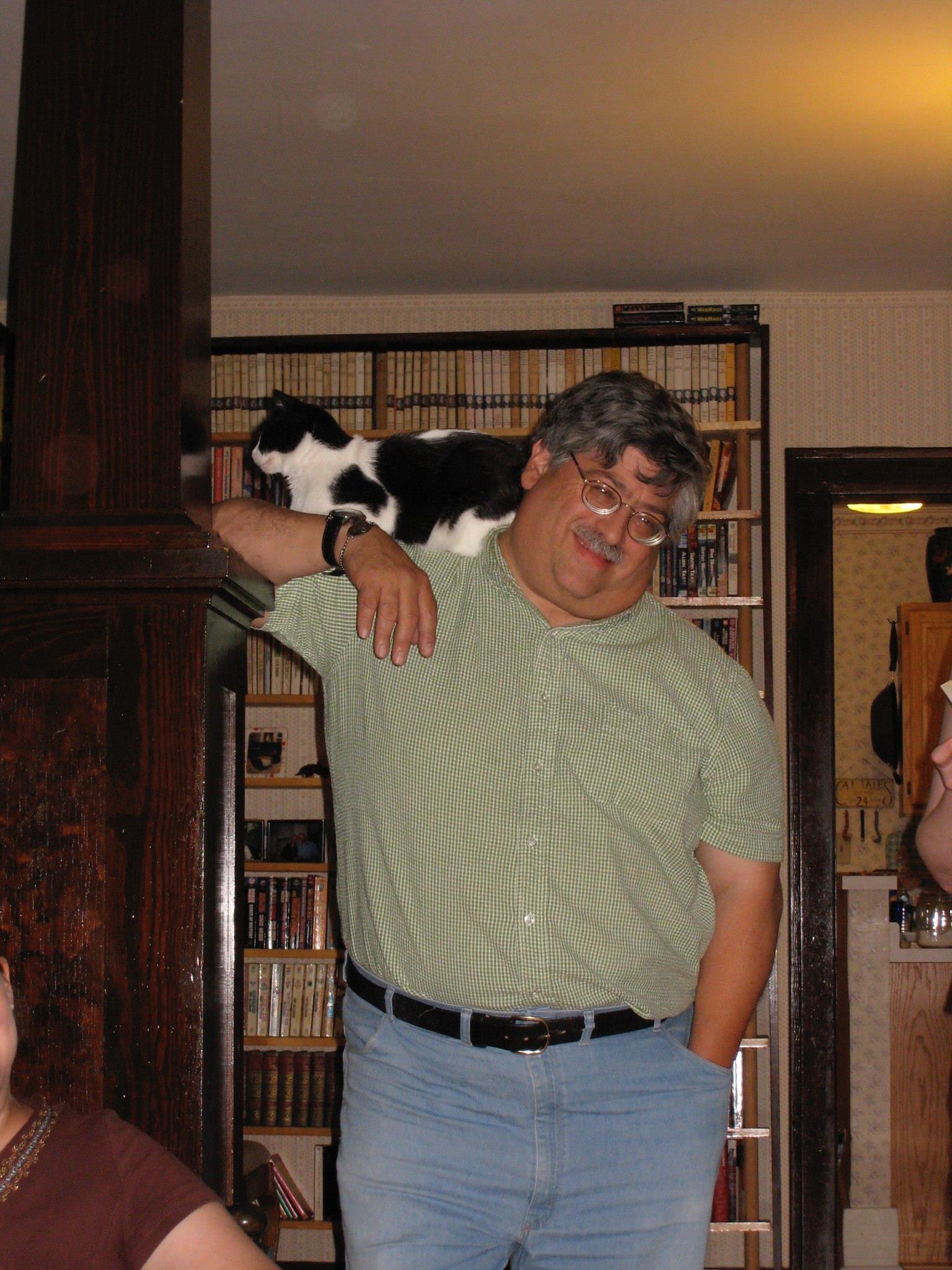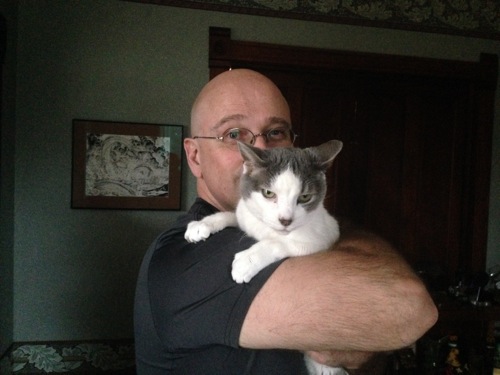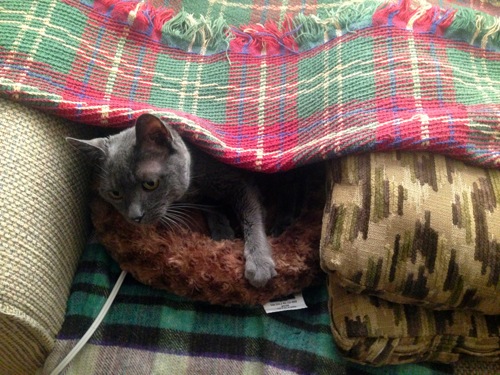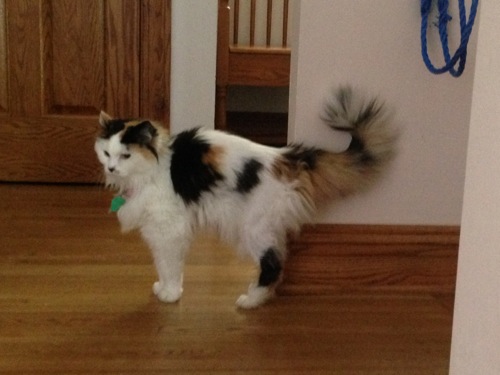I still don’t really have the heart for this post, but if I waited until I stopped hurting it would never get done. On May 12 we lost our beloved Ashbless kitty, better know as Ash or our gray beauty. She was mostly Russian Blue, though, like all our rescue kitties, a bit of a mutt and a mystery. She adored people and was a favorite with visitors as she was born without the aloof gene and would treat anyone who sat down on one of our couches as her very own personal thumb-monkey. She had resting anxious face, and everyone always wanted to make her feel better. When we first got her she didn’t like to be picked up or to sit on a person, but in the last year of her life she became a regular part of my catvest, going so far as to sleep on my chest for long periods. We loved her completely and miss her so much. I’m sure Laura will have more to say on that when her heart is a bit less broken.
This our first picture of her from 15 years ago.
Here she is with our beloved Meglet.
They came into our house together and they are both gone now.
Here she is on HER couch. Anyone who sat there belonged to her.
In her younger days she was an amazing hunter of bats and mice, but it
got harder when she lost her fangs. Here she is one fanged.
She could be amazingly beautiful and dignified.
She could also be quite tolerant. That’s totally not the expression of a cat
plotting to murder anyone.
Here she is on her favorite of Laura’s sweaters. She adored it so much
that Laura eventually gave it to her for her very own.
On cold winter mornings she was always part of the radiator gang.
They’re all gone now and it’s so hard.
Quick, throw in the all time goofiest Ash shot to turn tears to laughter!
Derposaurus Ashblessus.
Pretty sure I should follow that with her plotting her revenge for it.
“But, what makes you think I’m a revenge-minded kitty?”
She did a great sleeping dragon pose.
She could be clingy.
She spent some years as a professional dream high diver.
We built her this shelf so she could have her own food bowl up high.
The other cats picked on her sometimes and we wanted her to feel safe.
I miss this face so much.
Did I mention tolerant?
When you gave her really good skritches she went all poofy-tailed.
I was okay in a pinch but Laura was HER person.
“Can I really have this mousie for my very own?”
Another shot of our girls together as they so often were.
I’ll close with this. She could be mysterious.
But she was always reaching for the sun.

